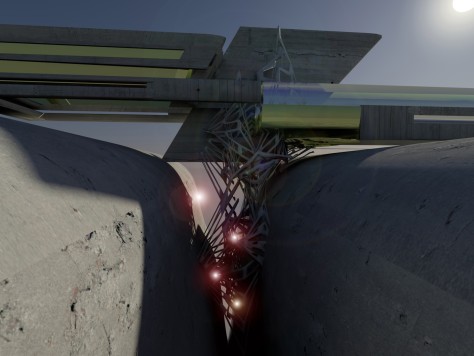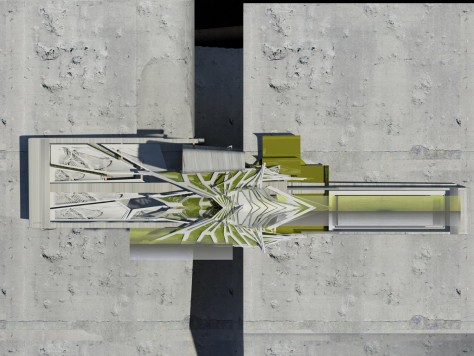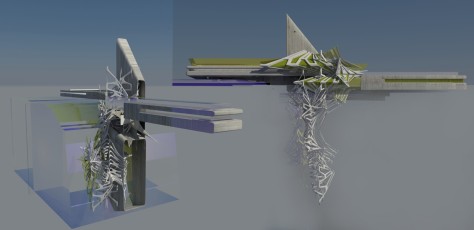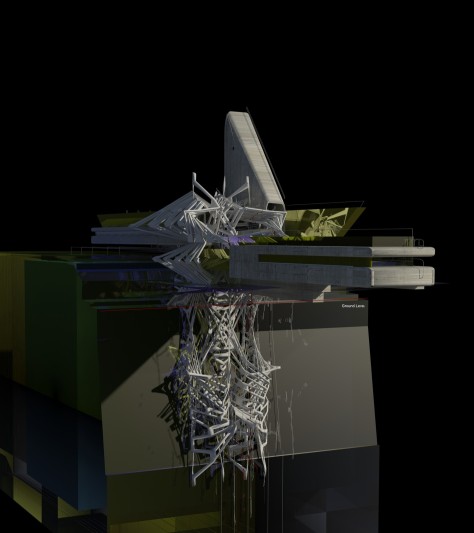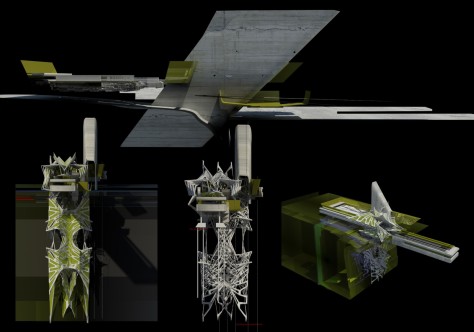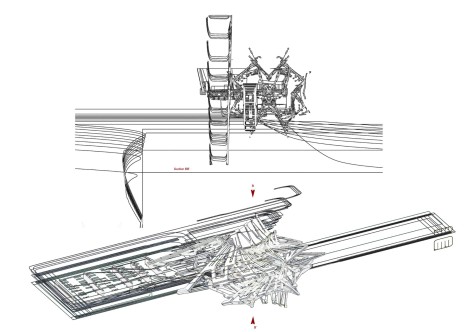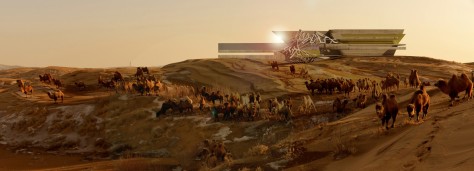
The Gobi desert has a dry prevailing Westerly wind which choreographs a shifting landscape, reforming dunes and redefining ecological terrains. The Gobi’s extreme climate and latitude contribute to the nature of the wind currents.

One of the biggest problems of the Gobi is desertification and the accelerated rate at which the desert sands and loess expand, 3,600 km2 of grassland is claimed every year by the Gobi Desert resulting in an increasing number of dust storms.
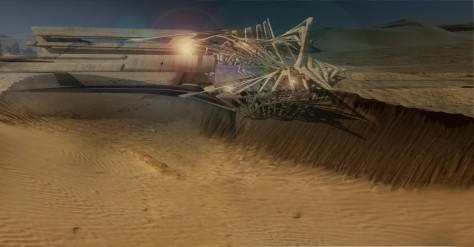
The expansion of the Gobi is attributed mostly to deforestation, overgrazing, and depletion of water resources as well as the prevailing westerly winds The most recent plan involves the planting of the Green Wall of China, a huge ring of newly planted forests; helping stabilize the soil, retain moisture, and act as a buffer against further desertification.

The solar cluster project acts as an underground seed vault, the rotating cluster of photovoltaic solar cells and holographic filteres glass panels act as a heliostat reflecting light underground aiding germination and protection against the harsh environment, sand turbines harness the kinetic movement/renewable energy of shifting sands to produce electricty for a sustainable building.

This underground shaft acts as an inverted greenhouse which can also produce food. The solar panels are arranged in a pattern which rotate changing angle as necessary for maximum efficient output, sand turbines are framed within the tower which disperses seeds into the environment to slow down the desertification of the Gobi Desert.

The sand piles also retain the desert temperatures for longer and can be used as a type of energy storage as they take longer to cool. The second stage of research focuses on solar updraft towers which use sand as an insulation technique. The project is commissioned by Gao from Ulan Bator, Mongolia. Source by Margot Krasojevic
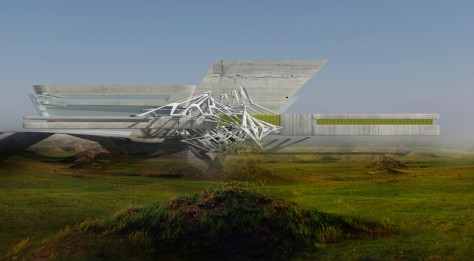
Location: Gobi Deser, (47°55′N 106°55′E)
Architect: Margot Krasojevic
Year: 2015
Images: Courtesy of Margot Krasojevic


